推荐产品
一般說明
Pro-Insulin consists of the three parts: C-peptide and two long strands of amino acids (alpha and beta chains; later become linked together to form the Insulin molecule). From every molecule of Pro-Insulin, one molecule of Insulin plus one molecule of C-peptide are produced. C-peptide is released into the blood stream in equal amounts to Insulin.
特異性
No cross-reactivity with Insulin or other peptide hormones or proteins was observed.
The antibody C-PEP-01 reacts specifically with C-peptide, a part of the Pro-insulin molecule.
免疫原
Synthetic C-peptide of human pro-insulin conjugated to bovine serum albumin.
應用
Research Category
Signaling
Signaling
Research Sub Category
Insulin/Energy Signaling
Insulin/Energy Signaling
This Anti-Pro-Insulin C-Peptide Antibody, clone C-PEP-01 is validated for use in IH(P) for the detection of Pro-Insulin C-Peptide.
品質
Evaluated by Immunohistochemistry in normal human pancreas.
Immunohistochemistry Analysis: A 1:100 dilution of this antibody detected insulin in human normal pancreas tissue.
Immunohistochemistry Analysis: A 1:100 dilution of this antibody detected insulin in human normal pancreas tissue.
標靶描述
Approx. 12 kDa
聯結
Replaces: CBL94
外觀
Sequential precipitation with caprylic acid and ammonium sulfate.
Format: Purified
Mouse monoclonal IgG1 in phosphate buffered saline, pH7.4, and 15 mM sodium azide.
儲存和穩定性
Store at 2-8°C and use within 1 year from date of receipt.
分析報告
Control
Human normal pancreas tissue
Human normal pancreas tissue
其他說明
Concentration: Please refer to the Certificate of Analysis for the lot-specific concentration.
免責聲明
Unless otherwise stated in our catalog or other company documentation accompanying the product(s), our products are intended for research use only and are not to be used for any other purpose, which includes but is not limited to, unauthorized commercial uses, in vitro diagnostic uses, ex vivo or in vivo therapeutic uses or any type of consumption or application to humans or animals.
Not finding the right product?
Try our 产品选型工具.
儲存類別代碼
12 - Non Combustible Liquids
水污染物質分類(WGK)
WGK 2
閃點(°F)
Not applicable
閃點(°C)
Not applicable
Mahmoud M Gabr et al.
Scientific reports, 14(1), 17844-17844 (2024-08-02)
This study was to determine whether extracellular vesicles (EVs) derived from insulin-producing cells (IPCs) can modulate naïve mesenchymal stromal cells (MSCs) to become insulin-secreting. MSCs were isolated from human adipose tissue. The cells were then differentiated to generate IPCs by
Mohammad Massumi et al.
PloS one, 11(10), e0164457-e0164457 (2016-10-19)
The ability to yield glucose-responsive pancreatic beta-cells from human pluripotent stem cells in vitro will facilitate the development of the cell replacement therapies for the treatment of Type 1 Diabetes. Here, through the sequential in vitro targeting of selected signaling
Sapna Puri et al.
Nature communications, 9(1), 485-485 (2018-02-06)
Pancreatic β cells are highly specialized to regulate systemic glucose levels by secreting insulin. In adults, increase in β-cell mass is limited due to brakes on cell replication. In contrast, proliferation is robust in neonatal β cells that are functionally
Haiqing Hua et al.
The Journal of clinical investigation, 123(7), 3146-3153 (2013-06-20)
Diabetes is a disorder characterized by loss of β cell mass and/or β cell function, leading to deficiency of insulin relative to metabolic need. To determine whether stem cell-derived β cells recapitulate molecular-physiological phenotypes of a diabetic subject, we generated
Sunghee Chai et al.
Human gene therapy, 33(15-16), 789-800 (2022-03-18)
Diabetes mellitus, caused by loss or dysfunction of the insulin-producing beta cells of the pancreas, is a promising target for recombinant adeno-associated virus (rAAV)-mediated gene therapy. To target potential therapeutic payloads specifically to beta cells, a cell type-specific expression control
我们的科学家团队拥有各种研究领域经验,包括生命科学、材料科学、化学合成、色谱、分析及许多其他领域.
联系技术服务部门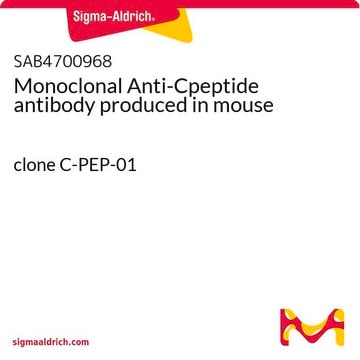
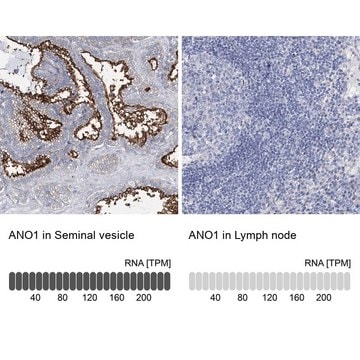

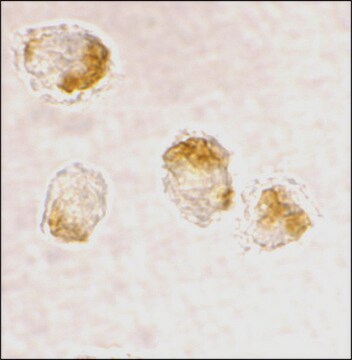
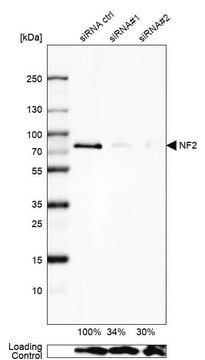

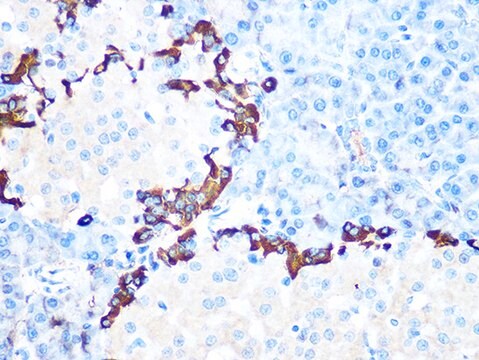
![鸟苷 5′-[β-硫代]二磷酸 三锂盐 ≥85% (HPLC), powder](/deepweb/assets/sigmaaldrich/product/structures/155/734/9bd8c8c5-4388-4f95-a924-4ff058fa4f41/640/9bd8c8c5-4388-4f95-a924-4ff058fa4f41.png)
